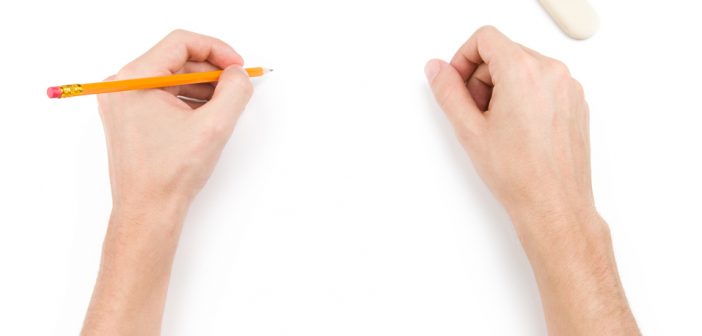As a left hander, I’ve struggled my whole life. Sure, it’s a low-grade struggle, and it mostly involves scissors and tennis racquets, but it’s a struggle nonetheless. And I’m aware that my life expectancy is a full nine years less than you right handers. That’s a whole lot of lost time.
Still, on the bright side, apparently I – along with the 10% of the population that are left-handed – am likely to be more creative, wealthy, and fast at typing. So I’m calling us even.
But it has always baffled scientists why some of us naturally prefer to use our left hands, but most prefer to use their right. They haven’t been able to find any distinctive differences in our brains and so the mystery remained unsolved until now.

But now scientists have finally worked out it’s all to do with the spine, not the brain.
It’s all ingrained in your biology before you’re born, but your hand preference comes from gene activity in your spine. A team of researchers from Germany, the Netherlands and South Africa worked together to monitor the spinal cords of babies growing in-utero between the eighth and twelfth weeks of pregnancy.
They were the first ever to detect some asymmetry happening in those babies’ proto-spinal cords even at that stage. The early stage of development is important because it is taking place well before the motor cortex – the part of the brain responsible for movement – has been ‘wired up’ to the spine.
So this asymmetry is happening in the parts of the spine that transmit electrical impulses to the hands, arms, legs and feet – and it’s deciding whether this tiny baby is going to be left or right handed.
What makes this even more interesting is that it’s not these babies’ genes causing them to become left or right handed, it’s environmental factors in the uterus. The scientists don’t quite know what those factors are yet, but the fact that Great Aunty Beryl was a left handed juggler bears no influence on whether you will have left handed children.
This explains why all three of my children are disappointingly right handed. At least they’ll probably live longer, but they’ll be average typists.

